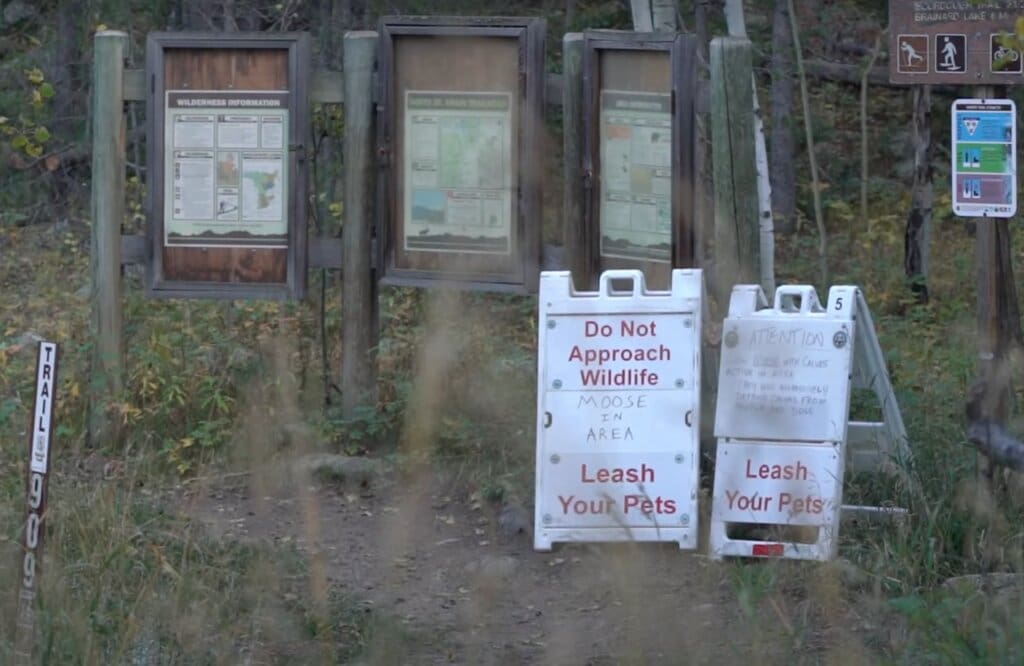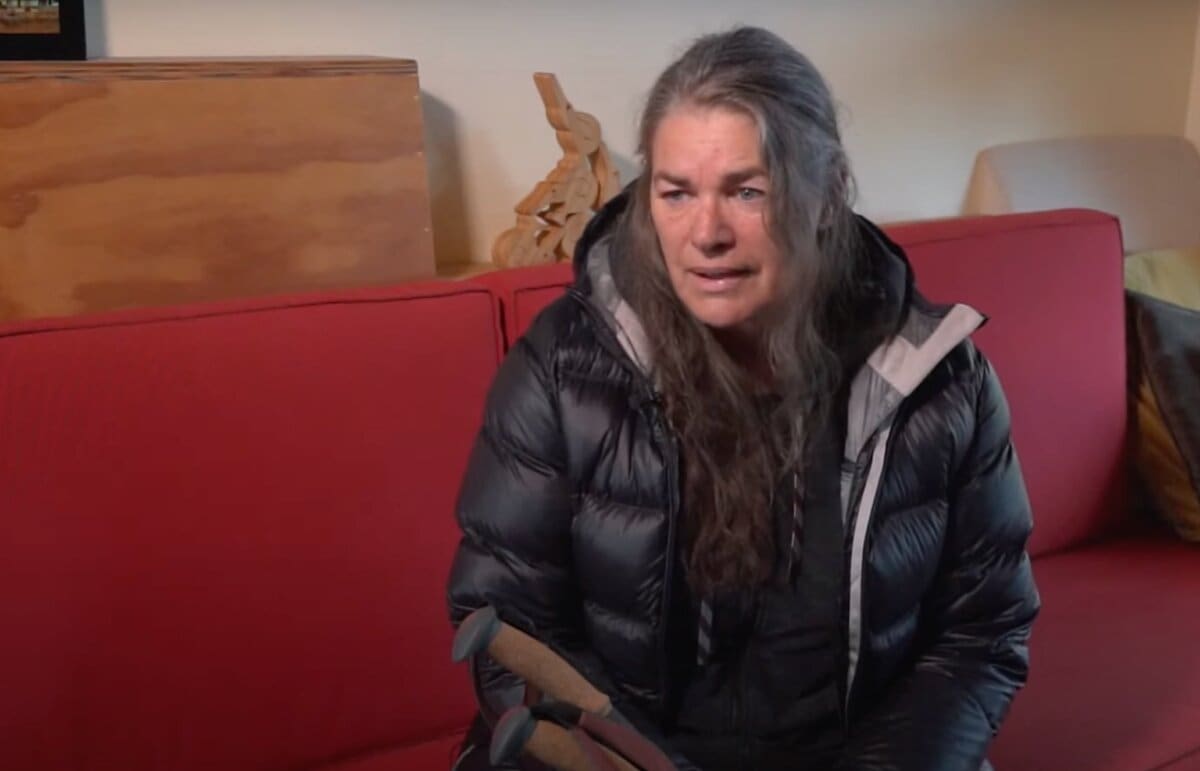
Following up on the story yesterday of a woman in Boulder County that was headbutted and stomped by a moose as she sat down with KVDR to talk about the incident and the extent of her injuries.
Chris Ray was walking her dog Nala on hiking along the South Saint Vrain Trail north of Ward when the cow moose attacked Wednesday morning. KVDR spoke with Chris who recalled the harrowing experience:
“I heard an ‘oo’ again and I turned around to look and a moose was charging us from the rear.
I turned away from her trying to get behind the nearest tree, but I tripped over some barbed wire that I didn’t even know was there. The moose just ran over me and then ran over me again and then was coming back for a third time when I scrambled behind a tree.
It was maybe like falling off a two-story building. The moose broke three of my vertebrae in my back and one of my ribs and also did a lot of soft tissue damage, especially around my kidney.”
CPW wants to remind people who hike near water should always be aware that moose may be in the area. Wildlife officials said moose can perceive dogs as a threat and can become aggressive with pets when their calf is nearby. Dog owners are encouraged to keep dogs on a leash at all times to avoid animal confrontations.
Moose have very few natural enemies in the wild and, as a result, do not fear humans as much as most other big game species. Moose tolerate humans longer and at closer distances. They are extremely curious and often will approach humans or houses, and even will look into windows. For these reasons, it is extremely important to understand moose behavior when living in or visiting the areas they inhabit.
Female moose (cows) are very protective of their young (calves), so they can be dangerous if approached or caught off guard. Bulls can also be aggressive and territorial, especially during the breeding season (rut) in the fall. Some bulls have taken over pastures and injured or killed livestock while defending their territories. Moose have also taken over feed yards and haystacks and will defend them from any and all intruders, whether they’re livestock or human.
These formidable beasts need their space and must be given command and respect when observed in the wild.
- Signs of moose aggression include laid back ears, raised hairs on the neck, and licking of the snout
- Avoid animals that are behaving belligerently or abnormally.
- Keep pets away, as moose can get quite aggressive around them. Be especially cautious when walking dogs.
- If a moose displays aggressive behavior or begins to charge, run as fast as you can and try to put a large object between you such as a boulder, car or tree
While moose encounters with people are quite common, moose cause few problems. However, moose have “treed” people who have approached them too closely, have killed or injured pets or livestock, and have chased people away from territories they are defending. Caution and common sense go a long way in preventing potential problems with moose.
Colorado Parks and Wildlife is liable for damage to crops, forage and fences caused by moose. If moose are causing damage, contact your local CPW officer immediately.
An increasing concern for our Colorado moose and for people is moose on the road. To learn tips on how to drive safely in moose country, read Moose Present Challenge to Motorists.

